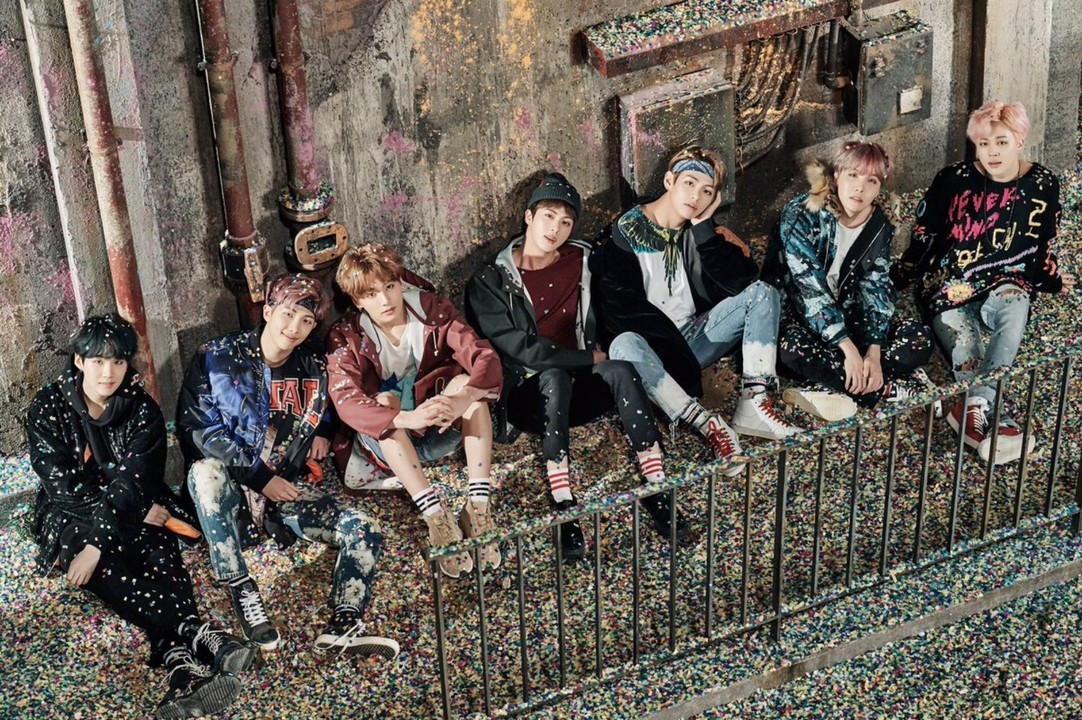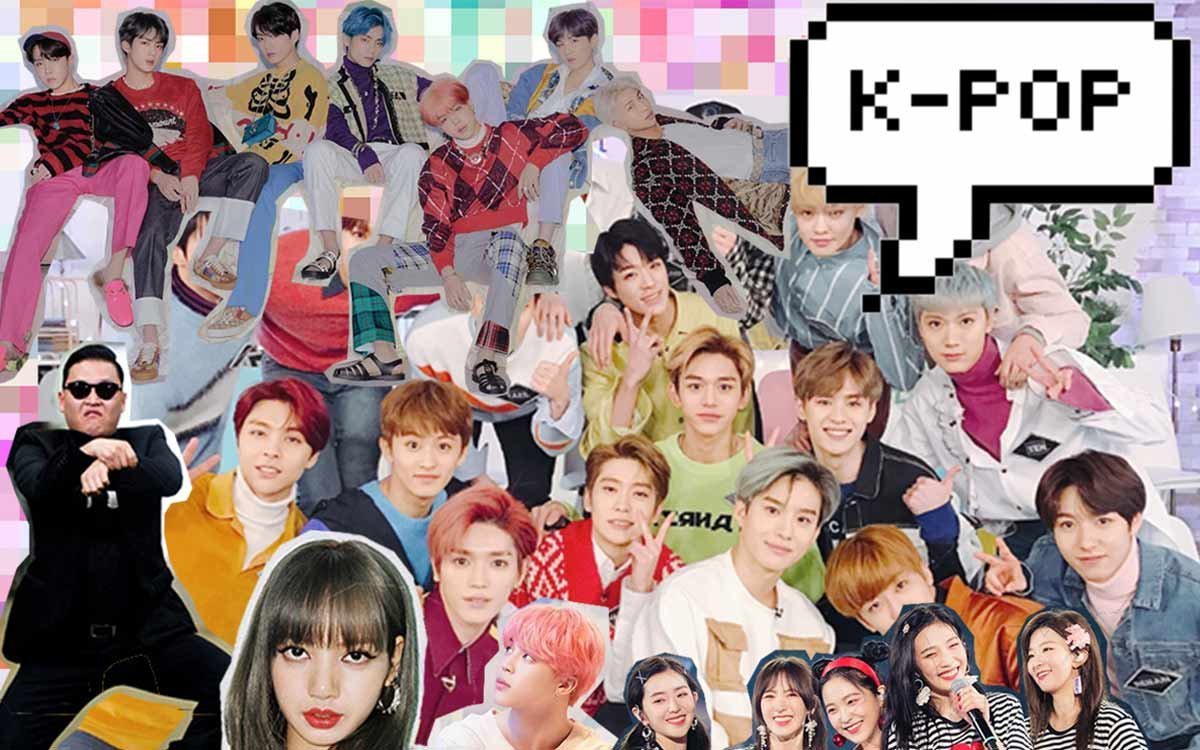
K-pop has taken the world by storm, captivating millions with its vibrant music, eye-catching visuals, and intricate choreography. But what’s behind this explosive rise to global fame? The answer lies in a powerful ally: social media. Through platforms like Twitter, Instagram, and TikTok, K-pop artists have created a direct line to their fans. This connection not only amplifies their reach but also fuels an ever-growing fanbase that spans continents.
As we dive into how social media propels the success of K-pop, you’ll discover the innovative strategies used by artists and labels alike. From viral challenges to real-time engagement with fans, it’s clear that this digital landscape is more than just a tool; it’s become an essential part of the K-pop phenomenon. Let’s explore why social media plays such a crucial role in shaping the future of this electrifying genre!
The Global Popularity and Success of K-pop

K-pop’s global popularity is nothing short of a cultural revolution. Originating in South Korea, this genre has crossed borders and transcended languages. Its infectious beats and polished performances resonate with audiences worldwide.
The rise of streaming platforms has made access to K-pop easier than ever. Fans can listen to their favorite tracks or watch eye-catching music videos anytime, anywhere. This convenience fuels the fire of fandoms that span across continents that leads to the success of K-pop.
Moreover, K-pop groups often incorporate diverse musical styles, appealing to various tastes. Whether it’s hip-hop influences or electronic sounds, there’s something for everyone.
Live concerts have also played a pivotal role in expanding K-pop’s reach and the success of K-pop. The energy at these events is infectious, creating unforgettable experiences that fans cherish and share online.
Social media amplifies this excitement by allowing fans to connect and engage with artists directly like never before leading to the success of K-pop.
Impact of Social Media on K-pop’s Rise to Fame
Social media has transformed the landscape of entertainment, and K-pop stands out as a prime example. Platforms like Twitter, Instagram, and TikTok have revolutionized how fans connect with their favorite idols.
K-pop artists use these platforms to share snippets of their lives. Behind-the-scenes footage creates intimacy that traditional media simply can’t provide. This fosters a sense of belonging among fans and adds to the success of K-pop.
Viral challenges associated with catchy songs have propelled groups to international fame almost overnight. The ease of sharing content allows for instant engagement across borders, breaking language barriers effortlessly adds to the success of K-pop.
Artists also tap into trending hashtags and memes to stay relevant in an ever-evolving digital space. Their ability to adapt keeps them on the radar while engaging younger audiences who crave authenticity and relatability.
The impact is undeniable; social media has redefined success in the K-pop industry by amplifying reach and influence beyond South Korea’s borders.
Building a Strong Online Presence: How K-pop Artists Utilize Social Media
K-pop artists have mastered the art of building a formidable online presence. Their strategies are as diverse as their music styles. Social media platforms serve as essential tools for them to connect directly with fans aids in the success of K-pop.
By sharing behind-the-scenes moments, personal updates, and glimpses into their daily lives, idols create a sense of intimacy. This authenticity fosters deeper connections with followers and leads to the success of K-pop.
Engaging content is key. Artists often use creative visuals and catchy captions to capture attention quickly. They leverage trends and challenges on platforms like TikTok to boost visibility and this leads to the success of K-pop.
Live streams offer real-time interaction opportunities, allowing fans to feel involved in their favorite stars’ journeys.
Collaborations with influencers expand their reach even further. By tapping into different audiences, K-pop artists ensure they remain relevant across various demographics.
This multifaceted approach solidifies the bond between artists and fans while enhancing their global footprint in an ever-evolving digital landscape.
Fan Engagement and Interaction through Social Media
Social media has transformed the way K-pop fans interact with their beloved idols. Platforms like Twitter, Instagram, and TikTok have created a direct line of communication that didn’t exist before.
Fans eagerly await updates from their favorite groups. Whether it’s a behind-the-scenes glimpse or a spontaneous live stream, these moments foster an intimate connection. This accessibility makes fans feel valued and involved in the artists’ journeys.
Moreover, social media enables fan participation through challenges and trends. Hashtags can spark global movements, allowing fans to rally together for causes they care about.
Engagement goes beyond likes and shares; it fosters community. Fans share theories about future comebacks or bond over shared experiences at concerts. These interactions create lasting friendships across borders.
Through social media, K-pop becomes more than just music; it evolves into a vibrant culture where every voice matters and every opinion counts leading to the success of K-pop.
Cross-Cultural Connection: Breaking Barriers with Social Media
K-pop thrives on its ability to transcend cultural boundaries. Social media acts as a bridge, connecting fans worldwide regardless of language or background.
Platforms like Twitter and Instagram allow artists to share snippets of their lives, music videos, and behind-the-scenes content. This transparency fosters a sense of intimacy between idols and their followers across continents aiding in the success of K-pop.
Fans engage with K-pop not just as consumers but also as active participants in the culture. They create fan art, translate lyrics, and even organize streaming events. This collaborative spirit nurtures a global community that celebrates diversity.
Moreover, social media lets K-pop stars interact directly with their audience through live streams or Q&A sessions. Such interactions make every fan feel important and valued.
This cross-cultural connection empowers people to embrace differences while uniting under shared passions for music and artistry. It’s this unique blend that fuels the relentless success of K-pop globally.
Controversies and Challenges Faced by K-pop Stars on Social Media
K-pop stars often find themselves at the mercy of social media. While their platforms can amplify success, they also expose them to intense scrutiny.
Negative comments and cyberbullying are rampant. Artists face harsh criticism for everything from their music choices to personal lives. This pressure can take a toll on mental health.
Moreover, misinformation spreads like wildfire online. Rumors can damage reputations overnight, leading fans to question loyalty or authenticity without any solid evidence.
The expectation for constant engagement adds another layer of challenge. Fans demand updates and interaction, making it hard for artists to maintain boundaries between personal life and public persona.
Navigating these complexities requires resilience. Many K-pop idols must develop thick skin while staying true to themselves amid the chaos that follows them in the digital age.
The Future of K-pop and its Relationship with Social Media

The relationship between K-pop and social media is likely to evolve even further in the coming years. As technology advances, the way fans interact with their favorite artists will become more immersive. Virtual reality concerts and augmented reality experiences are on the horizon, which could change how audiences consume music.
The success of K-pop has shown that a strong online presence is not just beneficial but essential. Labels like SM Entertainment and YG Entertainment are already investing heavily in digital marketing strategies. This suggests that they recognize social media as a powerful tool for reaching international audiences.
Emerging platforms may also play a critical role in shaping new trends within K-pop culture. As younger generations turn to newer apps or technologies, adapting quickly will be vital for both artists and management teams.
K-pop’s influence continues to break cultural barriers too, fostering connections worldwide through shared interests and fandoms. The future looks bright as long as these relationships remain dynamic and engaging. Artists who embrace innovation while staying true to their roots may find themselves at the forefront of this continuously evolving landscape.
Social media isn’t merely an accessory; it’s intertwined with K-pop’s very identity now more than ever before. Its impact on fan engagement, promotion, and artist visibility cannot be overstated—securing its place firmly in the ride towards greater global acceptance of this vibrant genre.
Read more about the success of K-pop here! Visit QAWire to know more about the music industry.


